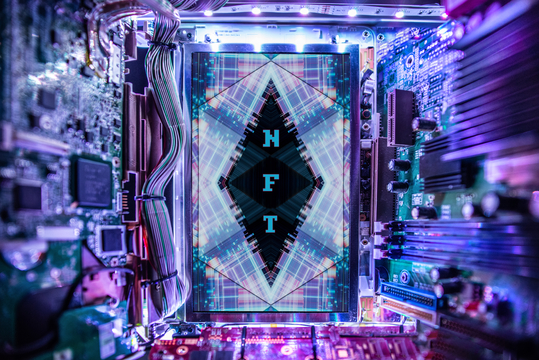
SEC ALLEGATIONS OF CRYPTO ASSET SECURITIES
Impact Theory markets itself as a media and entertainment company with the mission of introducing the world to empowering ideas at scale through story. Impact Theory issued and sold NFTs (aka Founder’s Keys) described to grant holders as access to ad-free content, an online school designed to teach users the skills needed to reach their potential, digital collectibles, opportunities with its Web3 partners, discounts on outside products and a story-based avatar creation tool and experience. The Founder’s Keys were offered at three tiers, with each tier providing varying degrees of benefits. Impact Theory offered Founder’s Keys NFTs through its Founder’s Keys website and facilitated sales through secondary markets, such as crypto asset trading platforms. Impact Theory received a 10% “royalty” on each secondary market sale.
In bringing this enforcement action, the SEC applied the definition of “investment contract” as articulated by the Supreme Court of the United States in Securities & Exchange Commission v. W.J. Howey Co.¸ 328 U.S. 293 (1946) (Howey test). Under the Howey test, investment contracts involve an investment of money in a common enterprise with a reasonable expectation of profits derived from the efforts of others. Here, the SEC argued that purchasers of Founder’s Keys had a reasonable expectation of obtaining future profits. In its allegations that the Founder’s Keys were offered and sold as “investment contracts,” the SEC highlighted the promises of a return on investment that appeared in Impact Theory’s marketing and promotional materials. The SEC quoted Impact Theory’s public statements that the Founder’s Keys would deliver “tremendous value.” For example, Impact Theory’s founders stated, “If you’re paying 1.5 [ETH], you’re going to get some massive amount more than that. So no one is going to walk away saying, ‘Oh man, I don’t think I got value here.’ I’m freakishly bullish on that. I will do whatever it takes to make sure that that is true.” Impact Theory also stated that it would use the proceeds from sales for “development,” “bringing on more team [members]” and “creating more projects,” which the SEC alleged had developed an expectation that profits would be based on Impact Theory’s managerial and entrepreneurial efforts. For example, Impact Theory’s founders stated, “I will make sure that we do something that by any reasonable standard, people got a crushing, hilarious amount of value.” The SEC also quoted Impact Theory’s public statements that the fortunes of purchasers, Impact Theory and Impact Theory’s founders were all linked together. For example, Impact Theory’s founders stated, “Our goal is to make sure that as Impact Theory is enriched, as [its founders] are enriched, as our team here at Impact Theory is enriched, that you guys also are enriched. And so that is why we are so aggressively behind NFTs.” The SEC did not allege that Impact Theory’s conduct was fraudulent.
In connection with the settlement, the SEC considered remedial acts undertaken by Impact Theory. Specifically, Impact Theory instituted repurchase programs in December 2021 and August 2022 whereby it offered to buy back Founder’s Keys and repurchased 2,936 Founder’s Keys, returning approximately $7.7 million worth of Ethereum to investors. This outcome may suggest that similar remedial actions taken by issuers may mitigate penalties sought by the SEC and encourage reduced settlement payments.
Impact Theory has undertaken to, among other things, destroy all Founder’s Keys in its possession or control, publish notice of the SEC’s order on its website and social media channels, revise the smart contract underlying the Founder’s Keys to eliminate any royalty it might otherwise receive and assist the SEC staff in administering a plan to distribute monetary relief to affected investors.
WHAT’S NEXT?
This first-of-its-kind enforcement action is notable in that the SEC has asserted that certain NFTs are investment contracts. Because this action was ultimately settled by the SEC and Impact Theory, the question remains as to whether a court of law would agree with the SEC’s stance on the offer and sale of NFTs by issuers in similar circumstances. On February 22, 2023, a federal judge in the US District Court for the Southern District of New York issued a first-of-its-kind order allowing a securities class action lawsuit to proceed against the issuer of NFTs on the grounds that the NFTs are securities under federal securities laws. (See Friel v. Dapper Labs, Inc., No. 21 CIV. 5837 (VM), 2023 WL 2162747 (S.D.N.Y. Feb. 22, 2023).)
SEC Commissioners Hester M. Peirce and Mark T. Uyeda dissented in part based on the SEC’s application of the Howey test analysis and stated that the matter raises larger questions that the SEC should grapple with before bringing additional NFT cases. Specifically, Commissioners Peirce and Uyeda believe the company and purchaser statements cited by the order are not the kinds of promises that form an investment contract, stating, “[W]e share our colleagues’ worry about the type of hype that entices people to spend almost $30 million for NFTs seemingly without having a clear idea about how they will use, enjoy, or profit from them. This legitimate concern, however, is not a sufficient basis to pull the matter into our jurisdiction. The handful of company and purchaser statements cited by the order are not the kinds of promises that form an investment contract.” Commissioners Peirce and Uyeda also questioned whether the facts warranted an enforcement action even if the NFT sales fit within Howey given that the company already made recission offers in the form of repurchase programs. As the dissent noted, the SEC “do[es] not routinely bring enforcement actions against people that sell watches, paintings, or collectibles along with vague promises to build the brand and thus increase the resale value of those tangible items.”
We regularly advise clients on all types of NFTs, and how they should be treated under US law based on their characteristics, sales and distributions. Our FinTech & Blockchain team can help you navigate the ever-evolving legal landscape affecting your business, ensuring you remain up-to-date and compliant.
